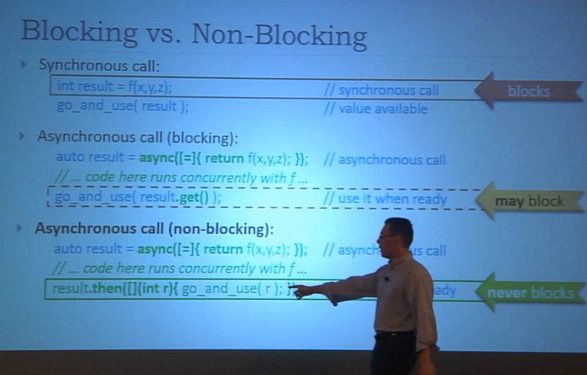C++11: The Future Is Here -- Bjarne Stroustrup
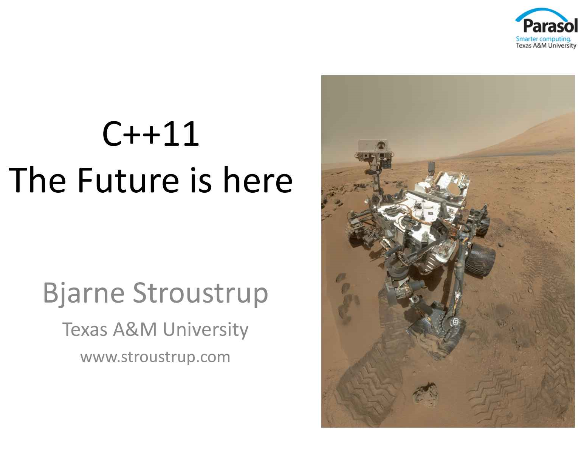
C++11: The Future Is Here
Bjarne Stroustrup
Summary: Bjarne Stroustrup keynotes on what C++ is in general, how C++11 makes simple things even simpler, resource management, generic programming, and concurrency.

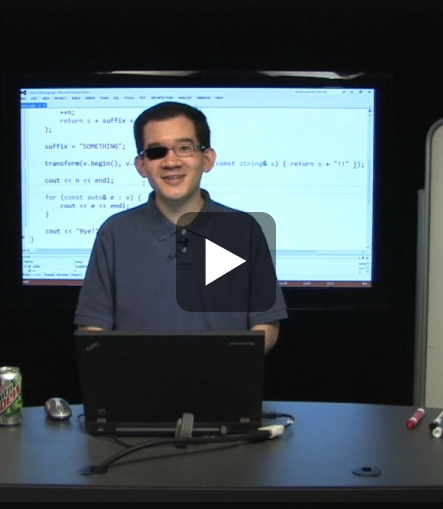 The two latest C++ lectures by Stephan T. Lavavej, the eponymous STL, are now available:
The two latest C++ lectures by Stephan T. Lavavej, the eponymous STL, are now available: The keynote addresses for
The keynote addresses for 
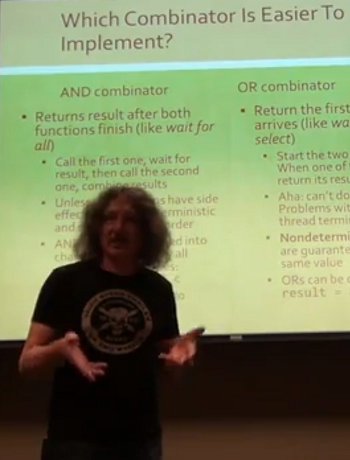 If you're familiar with functional language styles and you want an advanced look at how your favorite functional styles are supported in modern C++, with a dash of Haskell, check out these three videos by Bartosz Milewski:
If you're familiar with functional language styles and you want an advanced look at how your favorite functional styles are supported in modern C++, with a dash of Haskell, check out these three videos by Bartosz Milewski:
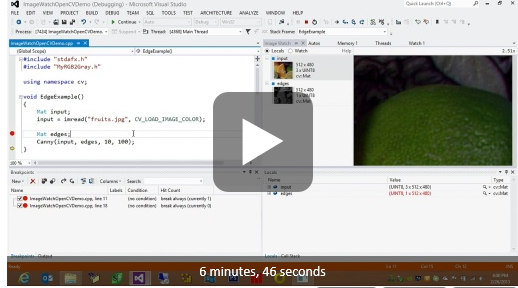
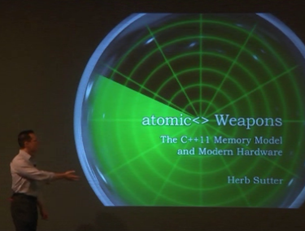 Herb Sutter's biggest and deepest talk at
Herb Sutter's biggest and deepest talk at 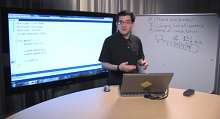 Two advanced talks by Stephan T. Lavavej (aka STL) are now available, the second being posted today:
Two advanced talks by Stephan T. Lavavej (aka STL) are now available, the second being posted today: